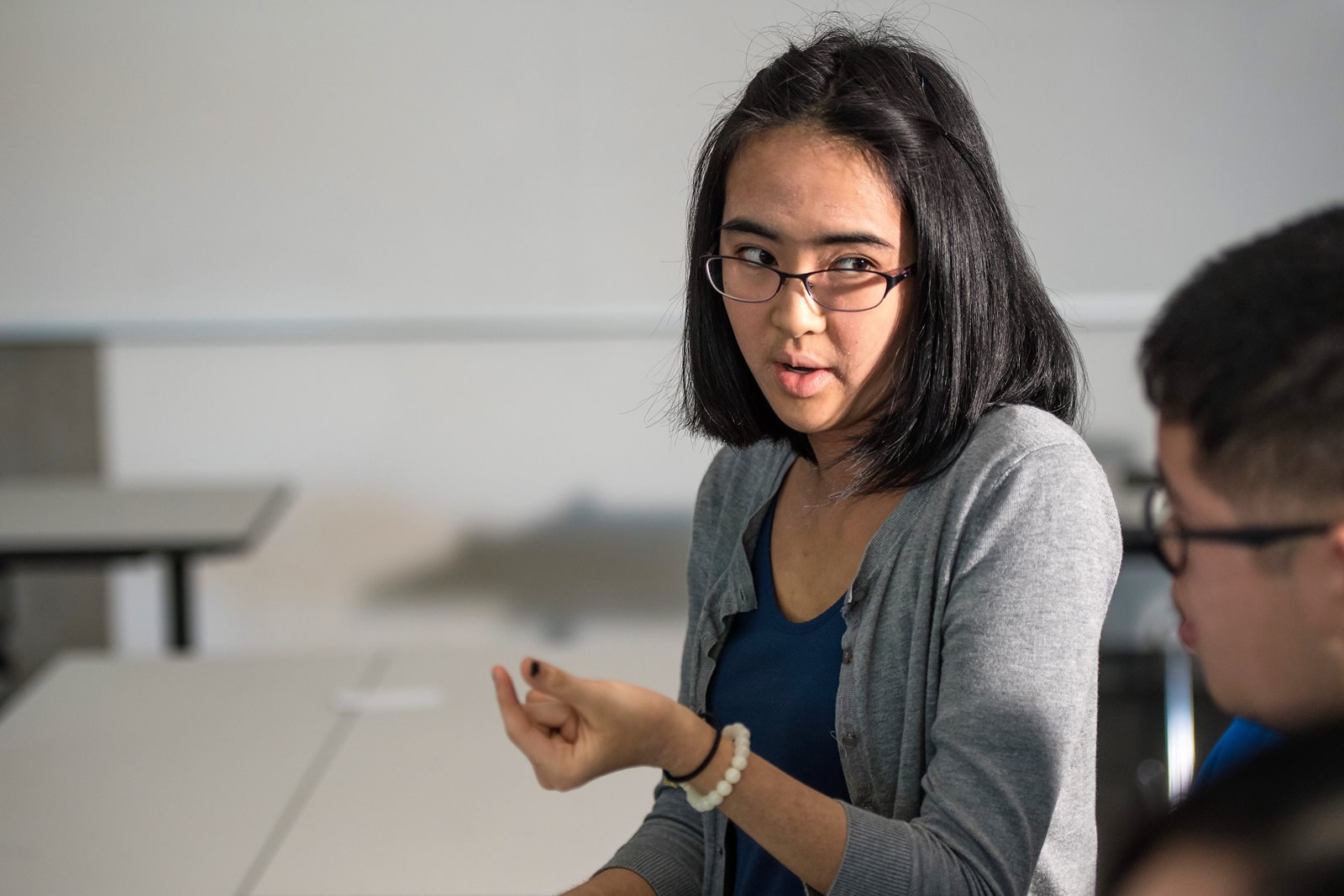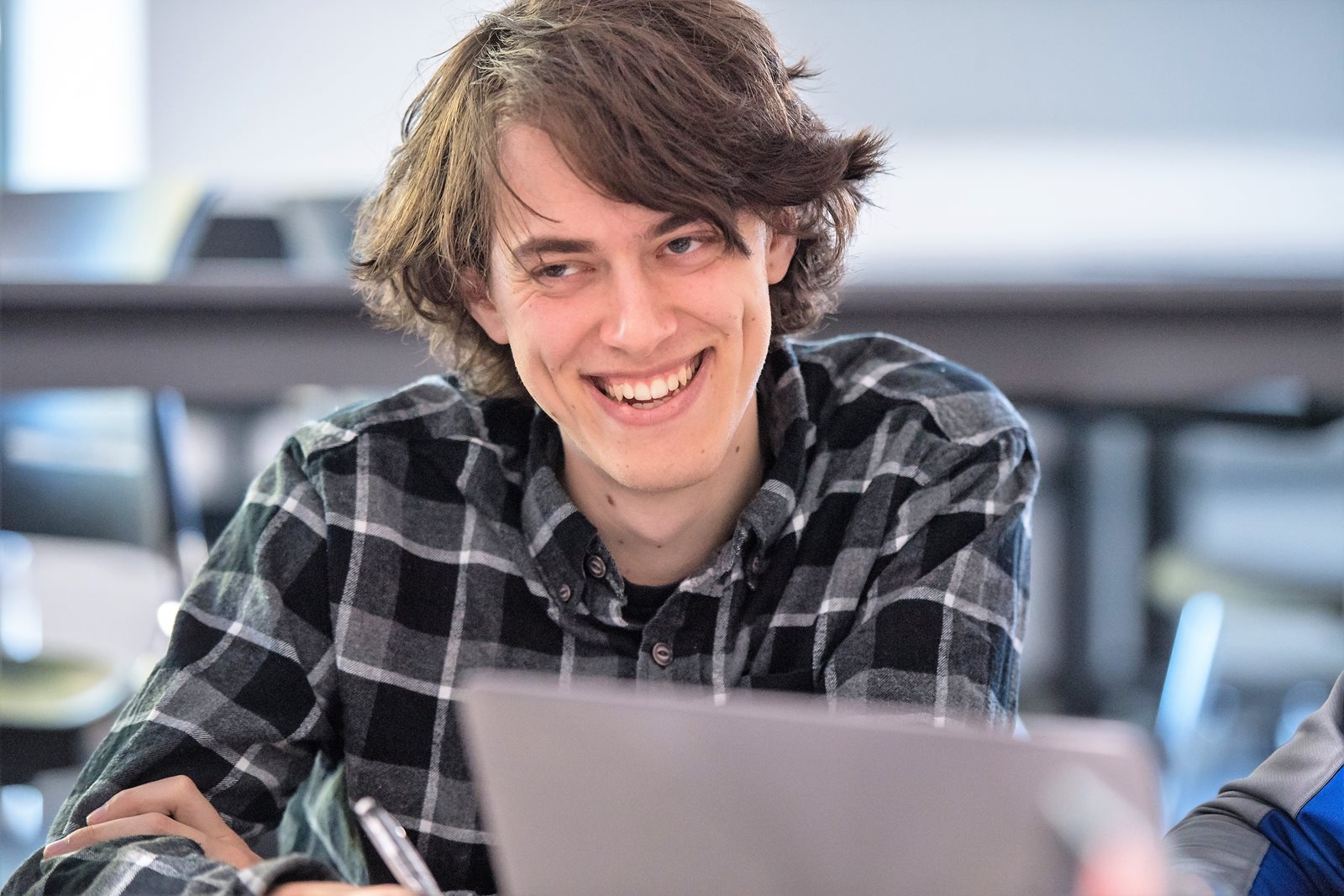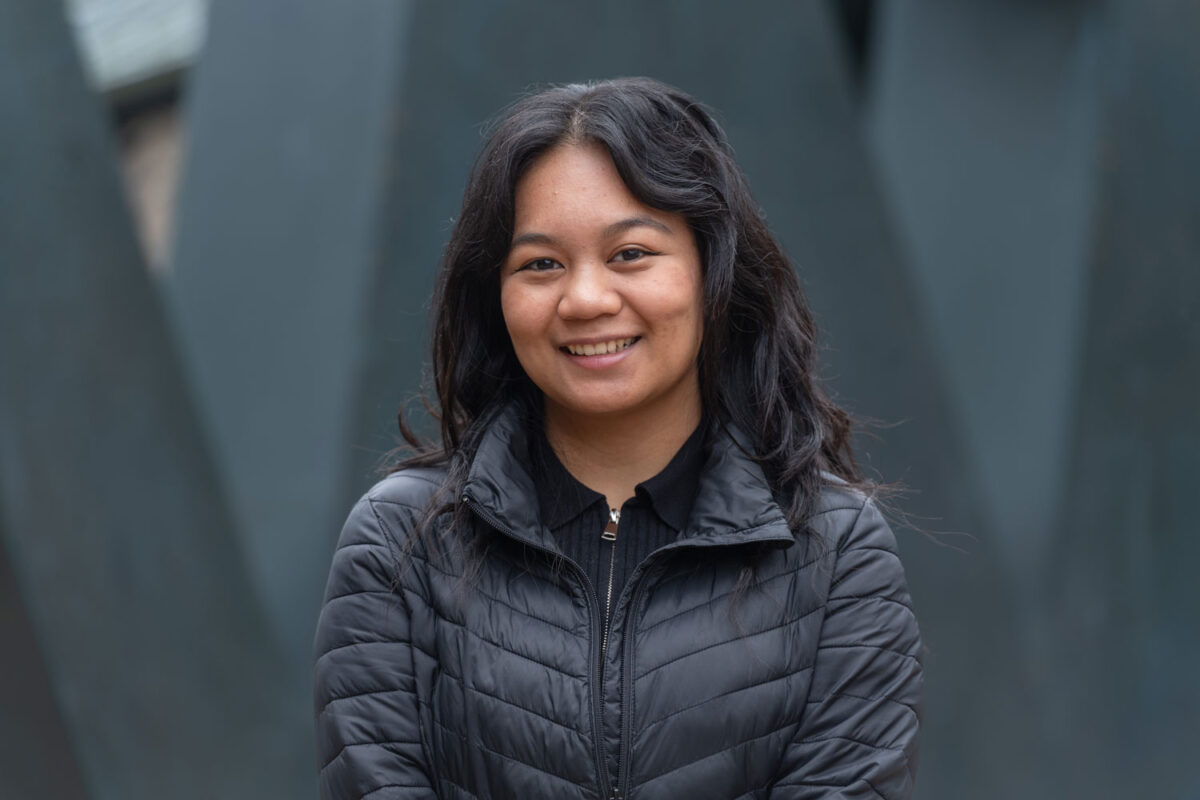By Douglas Esser
Marc Studer photos

Confidently progressing toward a June graduation with degrees in health studies and biology, Katie Pham remembers what it was like a few years ago in a large introductory course where the material was dense and the instructor didn’t have much extra time to spend with each student individually.
“I was also very intimated and reluctant to talk to professors,” said Pham, above with Chris Lock.
It was in a second quarter class when Pham encountered peer facilitators, who lead discussion groups inside and outside class, share supplemental materials and reach out to struggling students.
“I found it very easy to talk with them. They were my peers — either my age or a little older. I felt I was able to relate to them," Pham said. "That inspired me to do the same thing.”
Pham is now a peer facilitator in a course taught by Bryan White, senior lecturer in the biological sciences division of the School of Science, Technology, Engineering & Mathematics (STEM).
“I try to remember when I took the class and what concepts I struggled with,” said Pham, left. “I try to put myself in their shoes, and then I try to look ahead.”

Helping struggling students has the added benefit of giving peer facilitators experience as teaching assistants.
“I learn how to communicate with students of all different backgrounds. I think it’s made me more confident in my own knowledge and my ability to lead others,” Pham said. “This has been the most rewarding and positive experience I’ve had as an undergrad here.”
Some of the toughest climbs in college are the first math or science courses students encounter, the ones they need to enter their major. Sometimes called “gatekeeper” courses, they have the highest repeat rates. By using peer facilitators, the University of Washington Bothell is having success turning them into “gateway” courses.
White started using peer facilitators seven years ago in biology courses and promoted them to other faculty members, with support from Susan Jeffords, the vice chancellor for academic affairs; and Cinnamon Hillyard, the associate vice chancellor for undergraduate learning.

Photo: From left, Laura Khalil, Bryan White, Brooke Geller and Katie Pham.
Lecturer Susan McNabb also used peer facilitators in biology. And, they have been used in some chemistry courses since 2015, work pioneered by Senior Lecturer Kim Gunnerson.
This year a pilot program designed by STEM Lecturer Emily Gismervig, Kathy Mitchell, an academic adviser, and Hillyard is testing peer facilitators in the biggest gateway of all, precalculus. Precalculus is a prerequisite for all majors in STEM, business and some majors in the School of Interdisciplinary Arts & Sciences. It is also the most repeated course on campus, said Hillyard.
“Peer facilitators can help the faculty members reach out and help students realize there’s a whole team of support to make sure no one falls through the cracks,” White said.
With successful examples from biology and chemistry, the precalculus peer facilitators were employed this fall to improve student retention, said Hillyard. Mitchell is the coordinator for the pilot project in the First Year & Premajor Program.

Photo: From left, Sushank Adhikari, Zahrah Bhatti, Kathy Mitchell and Midhadu Kedir.
The peer facilitators teach separate, required one-credit Math Strategies courses, which have a total of about 200 students.
“So, students will have the direct support from at least two people,” said Hillyard.
The peer facilitators for Math Strategies hold office hours and address concerns with immediate feedback, said Mitchell. Selected from a variety of majors and backgrounds, the peer facilitators in this pilot project also serve as mentors for first-year students.
“We believe that if students see someone closer to their experience being successful that it will create a sense of belonging to our campus and a mindset that they are also capable of being successful in fields that require calculus,” Hillyard said.

Sushank Adhikari, left, who wants to major in business, appreciates one-on-one help with homework in the Math Strategies class. “I think I’m doing pretty good so far.”
Patrick O’Brien, left, who wants to major in computer science, said the Math Strategies help is similar to the tutoring assistance available in the Quantitative Skills Center.

These students' peer facilitator, Alyssa Vallester (electrical engineering ’19), expects all students in that section to pass through the gateway and into their major.
“I hope being part of this pilot program will make a difference in the school,” Vallester said.



